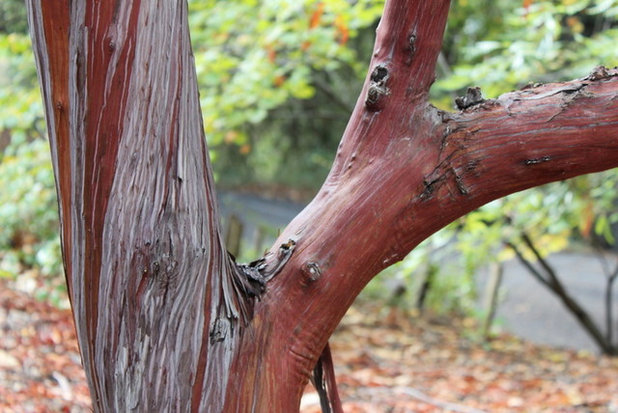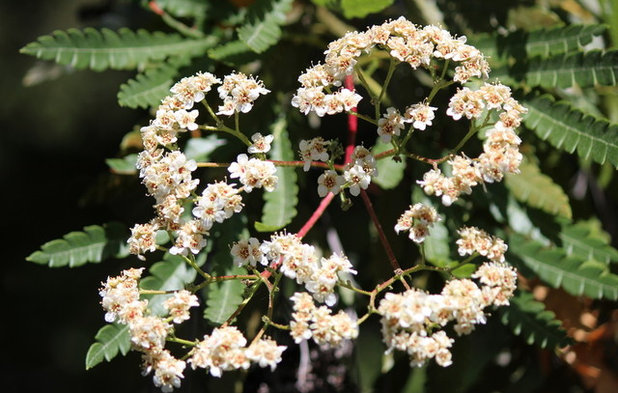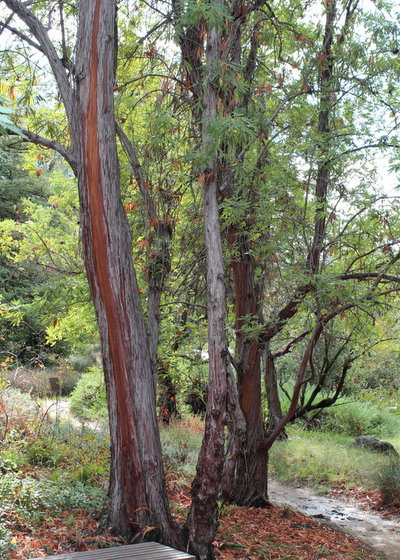Native to the dry, lonely islands off Southern California, Catalina ironwood is like a shaggy, well-worn page out of California history. It's a striking tree with the peely-bark look of an antique relic — perfect for a low-water, natural landscape. But in a more formal, neat setting, it's as out of place as a dusty old gold miner and his donkey wandering through a garden party.
More trees | Gardening ideas for your U.S. region

Catalina ironwood is a tall, usually slender evergreen tree for your toughest spots — those sunny, dry places at the edge of a garden.
Botanical name: Lyonothamnus floribundus asplenifoliusUSDA zones: 9 to 11 — essentially a California-only tree; find your zone
Water requirement: Light to moderate; gets along with little or no irrigation once established
Light requirement: Full sun
Mature size: 20 to 35 feet tall and 15 feet wide
 Distinguishing traits.
Distinguishing traits. The foliage is ferny, and that's the only delicate thing about the tree. White flowers in spring and summer come in clusters up to a foot or more across. The tree's handsomest feature is the reddish brown trunk with peely, shaggy bark — a look of antiquity.
Growing tips. Start with a single- or multiple-trunk tree, depending on the look you want for your landscape. Make sure the drainage is perfect. Prune young plants in winter to shape them. Cut off dry flowers after bloom if you can reach them.
 How to use it.
How to use it. Use Catalina ironwood as a single specimen or in a group. Plant one or more in the narrowest strips along a driveway. Create a grove on a dry hillside for privacy or to block a view; space 8 to 12 feet apart.





